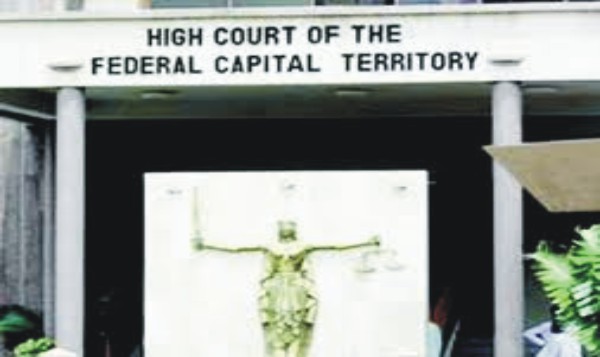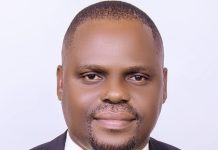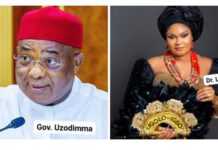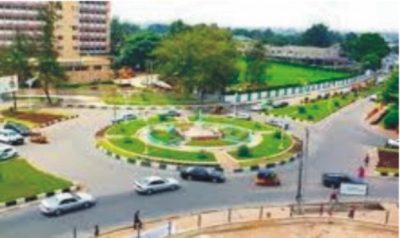By chinyere iwunna, 0818402702
The recent elevation of about 25 lawyers to the magisterial bench of Imo State has triggered off comments and reactions from various quarters in the state. The exercise which leaves much to be desired was greeted with criticism on both the procedure and the persons so appointed.
Personally, I would rather talk about the former because magisterial bench in Imo State has recently become the preserve of children, relatives and cronies of judges, occupants of government house, and chieftains of the ruling party at the time of the appointment irrespective of whether the persons are fit and proper or not.
Coming from journalism background, I eagerly joined the Judiciary arm of government which is generally believed to be more organised than the others. Excesses and recklessness of the Executive and Legislative arms of government are curbed by the Judiciary arm through the Courts. For this singular reason, the Judiciary must not at any time for any reason be found wanting in keeping to the tenets of the rule of law. This arm of government ought to be a pacesetter in a democracy.
Few months after his assumption of duties in 2011, Governor Rochas Okorocha of Imo State fired some members of the State Judicial Service Commission who were yet to complete their tenure of office.
Commendably, that act upon its challenge was set aside by an Owerri High Court presided over by Justice Nonye Okronkwo. But before the Court’s verdict, the governor had already appointed other persons to replace the sacked members of the commission. So it was the Governor Okorocha’s JSC that conducted the written test and oral interviews of those who applied to be elevated to the magisterial bench. Then came the judgment of the High Court which threw the Imo Judiciary into a legal turmoil. By ordering that the sacked members of the Imo JSC be reinstated, the implication of the judgment is that the Okorocha JSC was not validly constituted and every act or exercise done by the said body is a nullity.
The governor rather than obey the judgment, instituted an Appeal against it at the Court of Appeal Owerri, an act which was described by legal pundits as a face saving mechanism. Till date, nothing has been heard of the Appeal which the National Judicial Council (NJC) cited as the reason for the delay in the appointment of judges in Imo State.
After a while, there were speculations that the governor was taking steps towards paying off the sacked JSC members. During the law week of the Nigerian Bar Association (NBA) Owerri branch at Concorde Hotel Owerri, Governor Okorocha confirmed that efforts were on to settle the Imo JSC problem. According to him, financial offer was made which was rejected. But he assured the assemblage of lawyers that the problem would soon be a thing of the past. The legality or otherwise of paying off the sacked members of the commission may be a topic for another day but feelers from the Imo JSC at the time of the appointment of the 25 magistrates revealed that the sacked staff were yet to hear from the governor as at the time of the said appointment. It simply means that at the time of the said exercise, there was no Judicial Service Commission in Imo State.
Both the Constitution of the Federal Republic of Nigeria 1999 (as amended) and the Magistrates’ Courts Law (Cap 82) Laws of Eastern Nigeria, 1963 (as amended) provide that the Judicial Service Commission is charged with the responsibility of appointing magistrates in various states. Neither the Constitution nor the Magistrates’ Courts Law envisages a situation where there is no JSC; hence none makes provision for such.
Even members of staff of Imo JSC were not put in the picture in the controversial magisterial appointment. The names of the appointees were not published as required. The selected persons were informed via text messages and their appointment letters were backdated and signed by a Permanent Secretary of the Commission who had been retired at the time of the said appointment.
Some of the persons who benefitted in the appointment did not participate in both the written and oral interviews conducted for the applicants. How were those ones assessed? May be there were other methods of assessment which were not made open as a certain moneybag in the state whose wife benefitted in the exercise reportedly boasted before his allies that he influenced the wife’s appointment. Could this be happening in the Judiciary? Among them also are the sacred cows who though in public service were appointed, against the directive that those applicants in public service should not be invited for the interviews as a way of downsizing the bloated number of the applicants.
Before the controversy stirred by the text messages and the secret appointment letters could settle, the Chief Judge of Imo State, Justice B.A Njemanze surreptitiously administered oath of office on the appointees. There was no formal invitation of the stakeholders to the ceremony. Again, the appointees and their chosen invitees converged for the ceremony sequel to text messages sent to them in the early hours of that day, 25th June 2013. Interestingly, the text messages inviting the selected people to the swearing in ceremony of the said appointees were said to be sent from the office of the Deputy Governor! What do we call this? Executive Judiciary romance or what? Could this romance have arisen as a result of the regular breakfast meetings between judges in Imo State and the Governor?
The manner in which the swearing-in ceremony was held was aptly described by an Owerri based Legal luminary as akin to politicians rigging an election on a Saturday and swearing in winners of the said election early Monday morning. What were the organizers afraid of? Imagine, the BAR was not informed, lawyers left their houses early that morning for the Courts only to be informed that the Courts would not sit that day because of the swearing-in ceremony.
Governor Okorocha has in the past been reported as saying that he does not believe in due process. I never foresaw that the Judiciary arm of the state would one day be attacked by the no due process virus because he that is always looked up to in times of crises ought not to generate one himself.
The local branch of the Nigerian Bar Association i.e. the Owerri branch is in a good position to call the head of Imo Judiciary to order. Yes, leaders and elders of the Owerri BAR should shelve their personal yearnings and insist on whatever position the BAR takes in condemning this trend and the Imo State Judiciary should see the BAR as a partner in progress. The world is watching!
Chinyere Iwunna is an Owerri based Legal Practitioner.
Welcome!Log into your account











